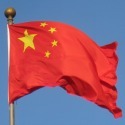Telcos pool $34.5B of assets in China Tower
A huge network-sharing venture should relieve financial pressure on China Mobile, China Unicom and China Telecom.

China's three state-backed mobile operators are to pool about $34.5 billion in assets in a new networks business that will support a more cost-efficient rollout of mobile broadband services by each player.
The business will be controlled by an entity called China Tower, which will take possession of all the telecom towers and related assets that are currently owned by the three service providers.
Established as a holding company back in July 2014, China Tower is to fund the transaction by issuing new shares and through cash.
The government-backed scheme is intended to aid the development of China's telecom market as operators work on upgrading existing customers to higher-speed data services.
It will bring together three huge players that have been competing for subscribers to new 4G services using different radio technologies.
In its own regulatory filing, China Mobile Ltd. (NYSE: CHL) -- the biggest of the three mobile operators -- said the move would allow it to roll out higher-quality network services at a quicker pace, reduce capital expenditure and improve cash management.
China Mobile will control 38% of China Tower once the transaction has been completed, compared with 40% now, with China Unicom Ltd. (NYSE: CHU)'s stake falling from 30.1% currently to 28.1% and China Telecom Corp. Ltd. (NYSE: CHA)'s dropping from 29.9% to 27.9% of the new-look business.
A state-owned organization called China Reform Corporation, which was set up to guide industry restructuring in China, will hold the remaining 6% stake.
The value of the deal appears to be at some premium to the book value of the assets, with operators set to pocket the difference in profits.
Ultimately, the profit boost for China Mobile will be around 19.5 billion Chinese yuan (US$3.1 billion), said the operator in its statement.
China Unicom indicated it would eventually realize a gain of about RMB9.682 billion ($1.5 billion) from the transaction, with China Telecom collecting about RMB5.132 billion ($810 million).
Figure 1: Value of Assets in China Towers Transaction ($B)  Source: operators, Light Reading
Source: operators, Light Reading
The deal also appears to include the assets of New Horizon, a subsidiary of China Unicom that handles the maintenance and management of network facilities and provides technical advice.
According to China Unicom's filing, New Horizon currently owns network assets in 21 provinces and cities in southern China.
Want to know more about 4G LTE? Check out our dedicated 4G LTE content channel here on Light Reading.
China Mobile's share price rose by 2.9% in Hong Kong on Thursday in the wake of the news, but China Unicom's fell by 2.8% and China Telecom's dropped by 0.5%, suggesting investors are not hopeful the latest move will restore much balance.
Both smaller players have failed to mount a serious challenge to China Mobile in the burgeoning market for 4G services, despite making investments in the FDD standard that has been more widely deployed in other parts of the world.
Relying chiefly on TDD LTE, China Mobile received its operating license well ahead of its rivals but has been able to extend its subscriber-numbers lead over them in recent months. (See China Mobile's 4G Roll.)
FDD technology uses one spectrum allocation for uplink communications and another for the downlink, while TDD relies on a single slot for everything.
Whether the towers venture will have any bearing on the operators' radio technology strategies is unclear, but it seems unlikely to pose a barrier to the continued use of different standards.
Indeed, network-sharing ventures in other regions have not prevented partners from pursuing different approaches to the deployment of higher-speed services.
The infrastructure tie-up should certainly relieve some of the financial pressure on all three of China's operators, which have been hit by falling prices and adverse regulatory moves as they have continued to pump money into the rollout of 4G services. (See China Unicom Loses Out to Rivals, China Mobile Profit Dips on 4G Costs, Tax and China Telecom Hit by Taxes as 4G Subs Soar.)
It also follows speculation about asset swapping and takeover activity in China's telecom market after recent consolidation and something of a management reshuffle. (See All Change in China? )
In August, China Unicom and China Telecom exchanged chairmen, with Unicom's Chang Xiobing moving to China Telecom and Wang Xiaochu going in the other direction, while China Mobile announced plans to acquire a fixed-line business called China TieTong.
The creation of China Tower last year was always aimed at helping China Mobile, China Unicom and China Telecom to avoid unnecessary duplication, but this latest step goes much further towards addressing that issue.
Last year, China Tower had RMB10.2 billion ($1.6 billion) in assets and reported a net loss of RMB273 million ($43 million).
— Iain Morris, 

 , News Editor, Light Reading
, News Editor, Light Reading
Read more about:
AsiaAbout the Author(s)
You May Also Like












